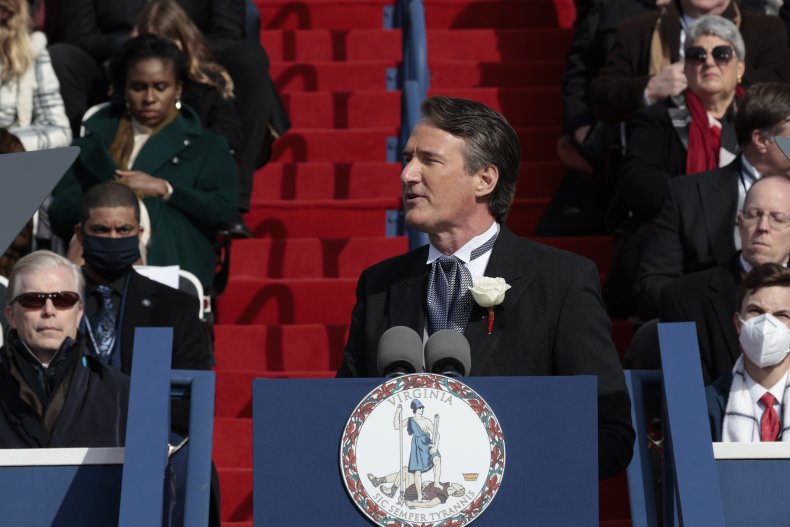Glenn Youngkin has hit the ground running, wasting no time in beginning to implement the agenda that elected him in November. The new Virginia governor, a Republican businessman and first-time political candidate, prevailed in a state that had gone for Joe Biden by 10 points a year earlier. The two issues that fueled his upset win, pandemic response and parental control of education, motivated the first two executive orders he signed after taking office Saturday.
The first ends the use of “inherently divisive concepts,” including critical race theory, in public education, a long-term project to reverse the cultural rot that became evident to parents supervising their kids’ virtual schooling. But it’s the second, which gives parents an opt-out from local mask mandates as of Monday, that gained immediate media attention and has already provoked massive resistance from the educational establishment.
School districts in the more left-leaning parts of the state—Richmond, Charlottesville and heavily populated Northern Virginia—quickly announced they would retain their mask mandates. White House press secretary Jen Psaki tweeted out her support of those policies as an “Arlington county parent.” At a meeting of the Falls Church City school board, where I live, Superintendent Peter Noonan indicated that he and his regional counterparts were contemplating legal action to preserve local control and mask mandates. He also said that kids showing up maskless on Monday will be sent home.
Yet Executive Order 2 (EO2), also styled Public Health Emergency Order 1, doesn’t purport to trump school boards or superintendents. Instead, after finding that “orders requiring virtually every child in Virginia wear masks virtually every moment they are in school have proven ineffective and impractical,” it specifies that parents “may elect for their children not to be subject to any mask mandate.” This comes as welcome relief to parents who are hardly unreasonable for being worried about cognitive development, language learning, mental health and other issues that have arisen from the coronavirus pandemic. My own kindergartner son has been diagnosed with a mild articulation disorder, for which he was evaluated without lowering his mask.
Moreover, unlike orders in Florida, Texas, Utah and elsewhere, there is no prohibition on masking. Quoting a key provision of the Virginia Code, which says that “a parent has a fundamental right to make decisions concerning the upbringing, education, and care of the parent’s child,” Youngkin’s order simply allows parents to choose what’s best for their children.

Instead of taking decision-making power away from local authorities, as former governor Ralph Northam did last year when he required masks in schools, EO2 respects both administrators and parents. That’s solid lawyering.
Critics of the order argue that it conflicts with a state law passed last year that requires schools to maintain in-person instruction while adhering, “to the maximum extent practicable,” to guidelines issued by the Centers for Disease Control. The CDC currently recommends universal masking, regardless of vaccination status. “Your executive orders do not change LAWS we passed,” state senator Louise Lucas tweeted. “Better learn how government works, we elect Governors not dictators.”
But state senator Siobhan Dunnavant, a doctor who helped craft that law, disputed the contention that it mandates masks. And following a federal agency’s suggestion isn’t “practicable” if the governor has made doing so illegal or has issued an order taking into account other aspects of state law. This is a question about the governor’s authority, not the open-schools law, which adds superficial atmospherics but doesn’t resolve the legal issue.
Here, Youngkin’s lawyers have again done well to cite not just executive authority under the state constitution, but a section of the Virginia Code that sets out the governor’s emergency powers and duties, as well as other provisions regarding the powers of the health commissioner. These gubernatorial powers may be too broad—though they’re much more detailed and thus circumscribed than the equivalent presidential powers—but EO2 fits comfortably within existing precedent. Under any reading of the law, Youngkin’s allowance of parental opt-outs is much more modest than Northam’s prohibition of school-district flexibility.
This legal battle of course reflects our larger debate over COVID policy two years into the pandemic. It should be no surprise that politicians elected specifically to correct the excesses of heavy-handed government actions—particularly in the sensitive area of education—are doing just that.


